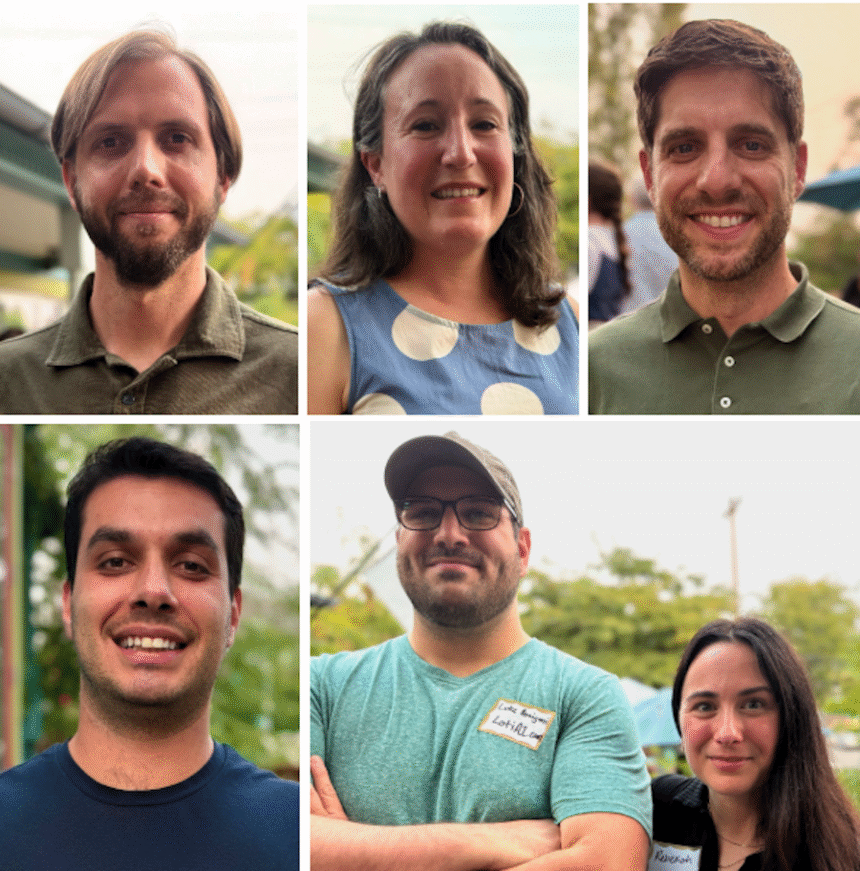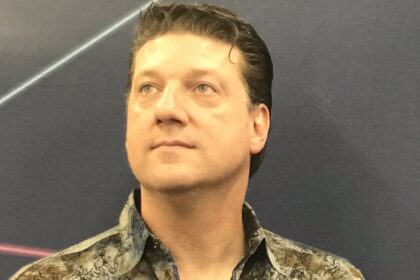Chatbots are great, but good old human-to-human contact can’t be beat, and Thursday night at GeekWire’s Seattle HQ, we caught up with several startup leaders for a party deck version of “Geek on the Street.”
Artificial intelligence was of course of a relevant topic. We wanted to know how founders and CEOs are using AI to make their jobs easier or to help their companies run smoother. We also wondered whether investors or customers are pressuring startups to look and sound “more AI” than they really are.
And finally, in an age of generative AI, agents, and other technologies that are blurring the lines between who really does what work, we asked our guests what the most human element is that they bring to work each day. It’s inspiring to hear about their appreciation for trust, humor, energy, passion and more.
Keep reading for answers to our questions, which have been edited for brevity and clarity.
Ross Finman, founder and CEO of Augmodo
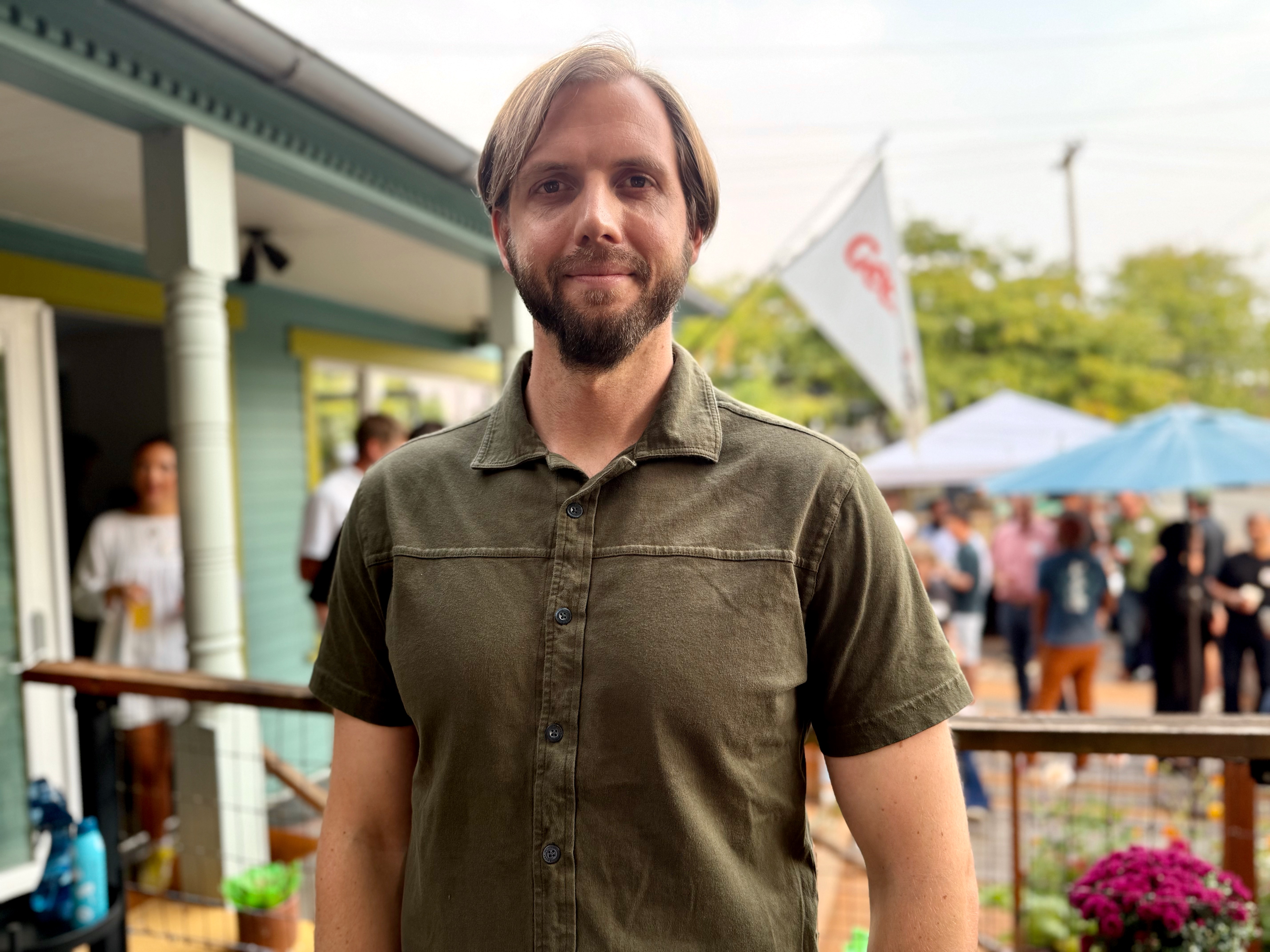
Seattle-based Augmodo helps retailers track inventory and manage data via a variety of tech, including specially designed “Smartbadges” worn by store employees.
What’s your favorite AI use case right now?
“For myself, personally, it’s actually doing research on individual customers. We work in the retail space, so if you wanted to get every address of every store that would be a very long process to try and mine that. You can actually do that as a deep research task in Gemini and compile that report in a couple minutes. … I’m a little bit skeptical of a lot of the use cases now, but in every area of excitement or hype cycle that you have, it takes a while for things to distill down.”
Do you feel pressure from investors or customers to look more AI than you really are?
“Definitely on the investor front. The more you can AI-a-fy things from an investor pitch, you have to say, ‘Here’s how everyone thinks about AI, and here’s our unique twist on it.’ Customers, at least in the retail space, they don’t care what technology [you’re using]. They’re just like, ‘Does it provide an ROI or not?’ You can [track inventory] manually right now, or if you do that digitally or with AI or whatever, they really don’t care.”
What’s something you as a human still provide to your company that AI doesn’t?
“Trust. Especially in a small team, like, ‘Hey, Dom has this, Joe has that,’ I can trust that it’s all getting done, rather than an AI system with that constant hallucination. And even with the customer, there’s a reason why, even post-Covid, people get on planes and visit customers in person.”
Arna Ionescu Stoll, CEO of Wavely Diagnostics
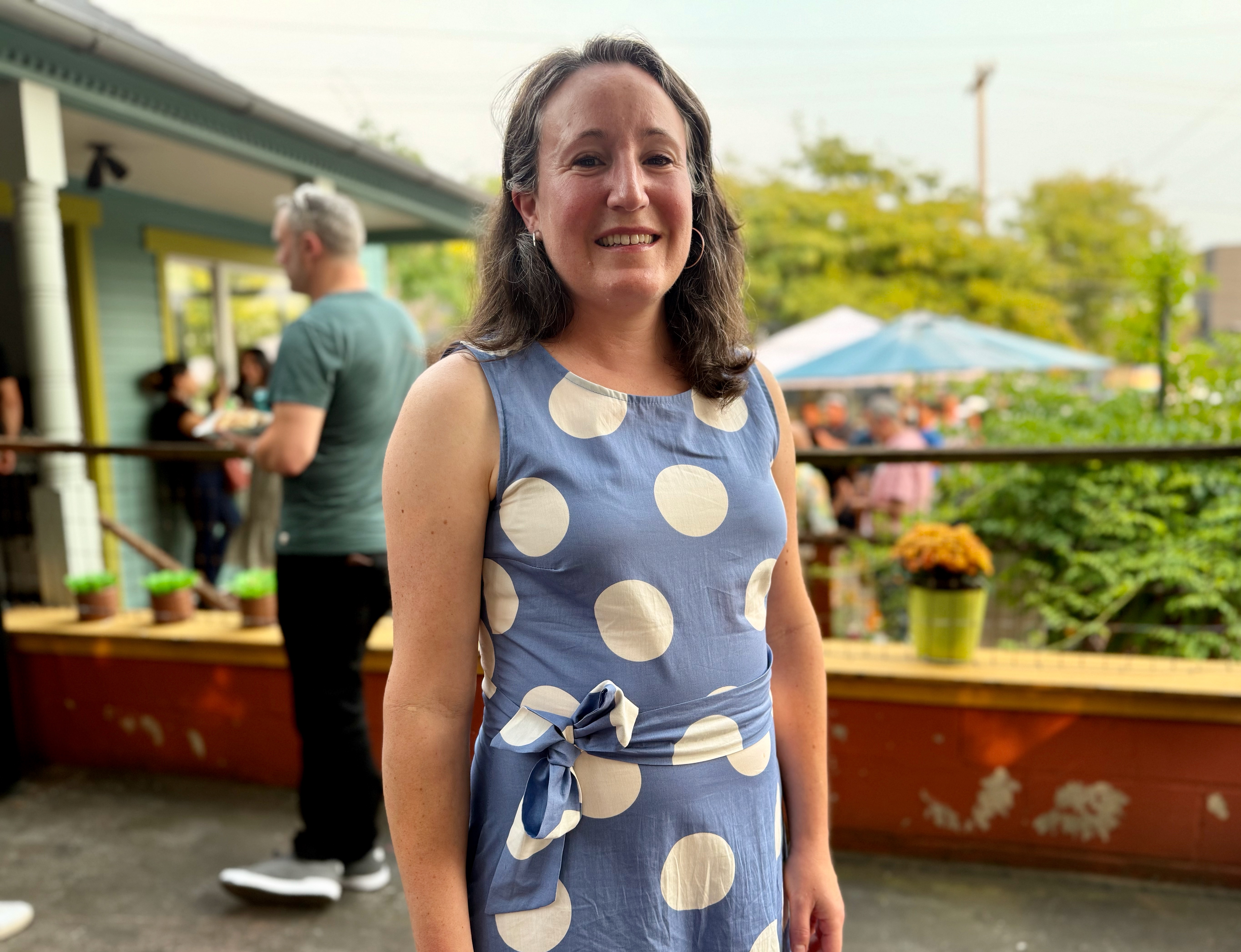
Wavely Diagnostics is a University of Washington spinout that developed a smartphone app that uses acoustic signals to detect signs of an ear infection.
What’s your favorite AI use case right now?
“I have two examples of how I used it in the last 24 hours, and both of them were hugely time saving. The first one, we needed to create an unsubscribe link in our emails and a landing HTML page where people go to confirm their unsubscribe and tell us why. I went to ChatGPT and less than two minutes later we were done. … Another way I use it as CEO is to write. I don’t ask it to write for me. I write a draft, I put it into Claude of ChatGPT and I say, ‘Here’s my draft. Can you take a look at it?’ And then, depending on what it’s for, it revises it and it invariably does an excellent job. I did the thinking, but what it does is it gives it the polish.”
Do you feel pressure from investors or customers to look more AI than you really are?
“I got an email today from an investor of ours, basically saying, ‘If you’re not AI native, in terms of how you build, you’re dead in the water.’ It is an expectation that you build with AI right now in order to get venture funding. My reaction to that is I think that a couple of years from now, there’s gonna be a heck of a lot of tech debt that companies are going to be wading through if they’re relying too much on GenAI to write everything for them. It’s a tool. Some people think it’s a replacement. I don’t agree with that.”
What’s something you as a human still provide to your company that AI doesn’t?
“A little bit of humor. A little bit of … we all talk about our kids not letting us sleep at night. Fundamentally, companies are built by teams of people. You’ve got to have good relationships. You’ve got to enjoy being together, or why the heck are you going to work so many hours side-by-side?”
Luis Poggi, CEO of HouseWhisper
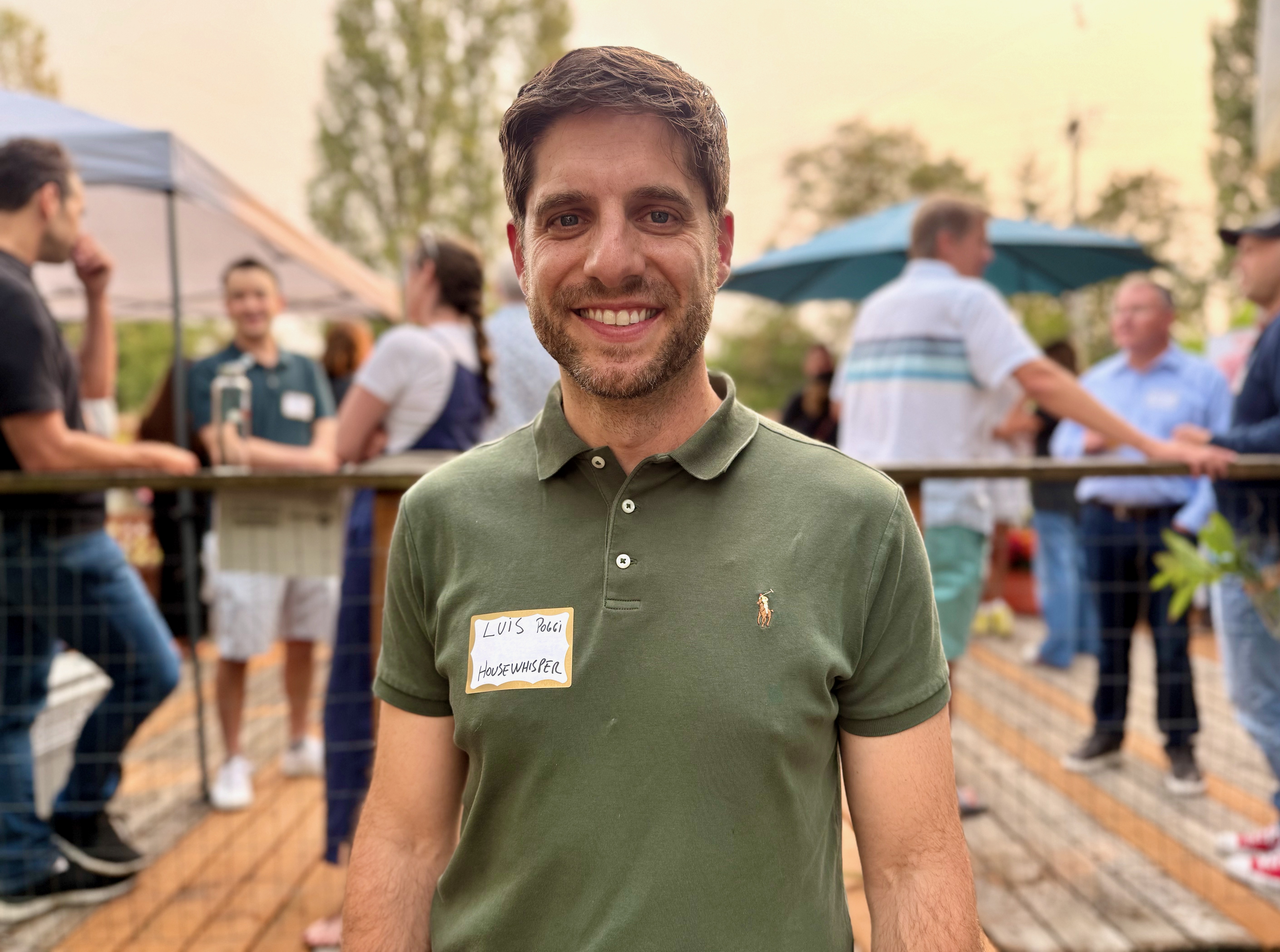
HouseWhisper a Seattle-based startup that relies on generative AI to help real estate agents stay organized with help on following up with clients, scheduling, CRM updates and more.
What’s your favorite AI use case right now?
“I’ve been using it a lot for creating product ideas. I take customer feedback and my ideas and I start brainstorming with AI. I use ChatGPT or Gemini when I drive from my home to downtown Seattle, I’m talking, brainstorming ideas. And then I get to the office and I talk to engineers and we get to the solution. It’s a thinking partner for me.”
Do you feel pressure from investors or customers to look more AI than you really are?
We are actually explaining a lot to our customers about what AI is, so from a customer perspective I don’t. From an investor perspective, maybe to use it in certain other parts of the business, for example, doing more marketing with AI tools. But no, it has not been a pressure.”
What’s something you as a human still provide to your company that AI doesn’t?
“I think the bringing the energy and the emotions and the passion to the day-to-day and motivating the rest of the teammates, I think that’s unique to us, to humans. And every time we encounter a problem, how we can turn around and go fast and motivate the team, I think that’s unique. That will not be replaceable.”
Luke Arrigoni and Rebekah Arrigoni, co-founders of Loti
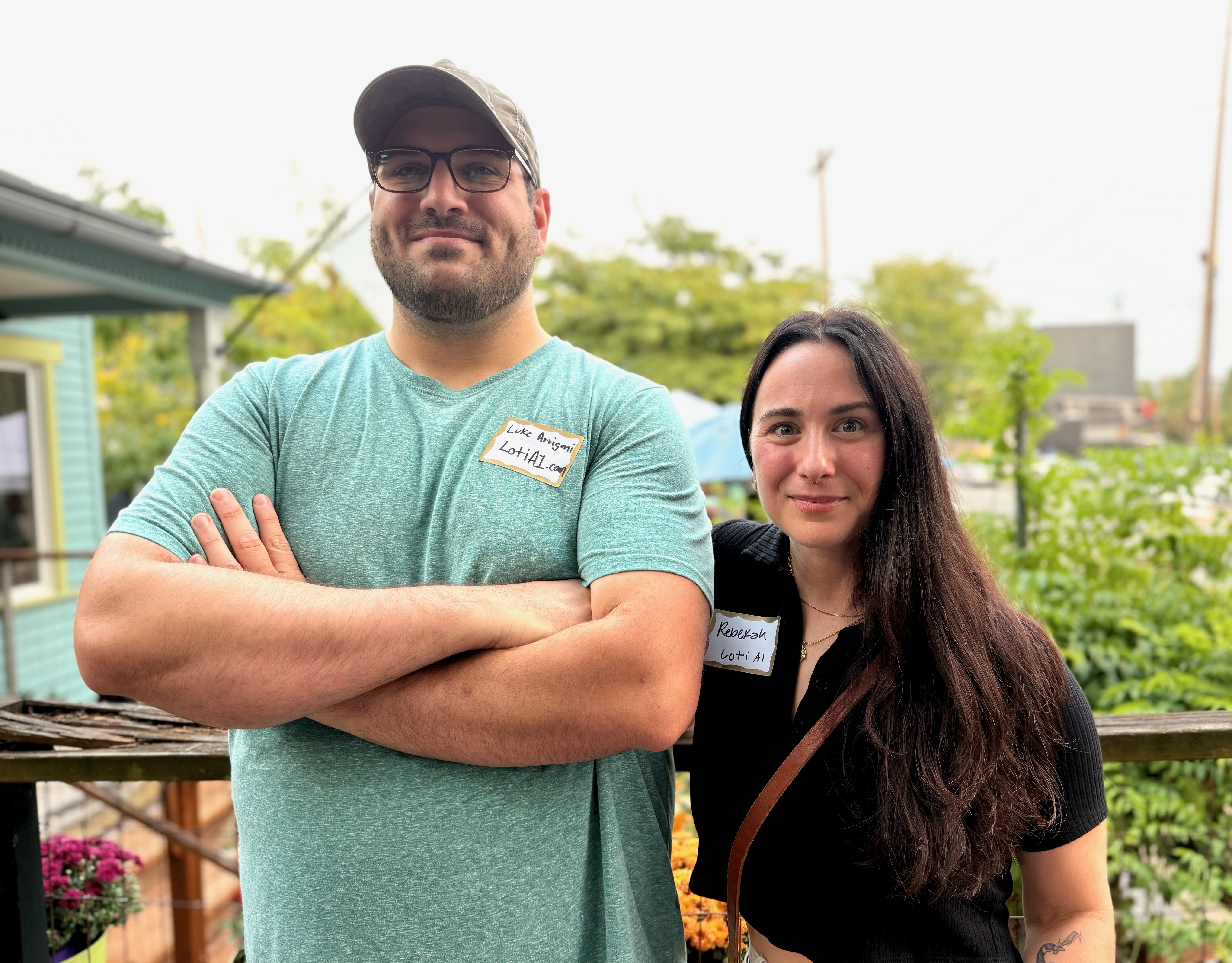
Seattle-based startup Loti helps celebrities, politicians, and other high-profile individuals protect their digital likeness in a chaotic world of deepfakes and IP rights.
What’s your favorite AI use case right now?
“Well, we built over 40 different proprietary machine learning models. With that, we can do facial and voice recognition across the internet to find instances of media that should not be online of folks, and then we can get that removed. Without AI I guess we could do what Google does with a reverse image search, but that’s not very effective. It really takes these very bespoke models to actually be able to what we do.” — Rebekah
Do you feel pressure from investors or customers to look more AI than you really are?
“I definitely get that it’s easier to fundraise if you talk about AI a lot. There’s a certain amount of words you can use. If I said ‘agentic’ too loudly here, I’d probably get someone to throw a check at me. Essentially we try to sell fundamentals of our business. What do people really want? What problems are you really solving? And AI is just sometimes a cheaper way to get it done.” — Luke
What’s something you as a human still provide to your company that AI doesn’t?
“I don’t think you can have self-regulation of nearly anybody — companies or AI. I think that it does require some level of human oversight. AI is obviously a fantastic tool. But ultimately there still needs to be a human to say, ‘This is a tool that’s gonna be useful for humanity,’ and today AI isn’t gonna be able to do that.” — Rebekah
Alejandro Castellano, CEO of Caddi
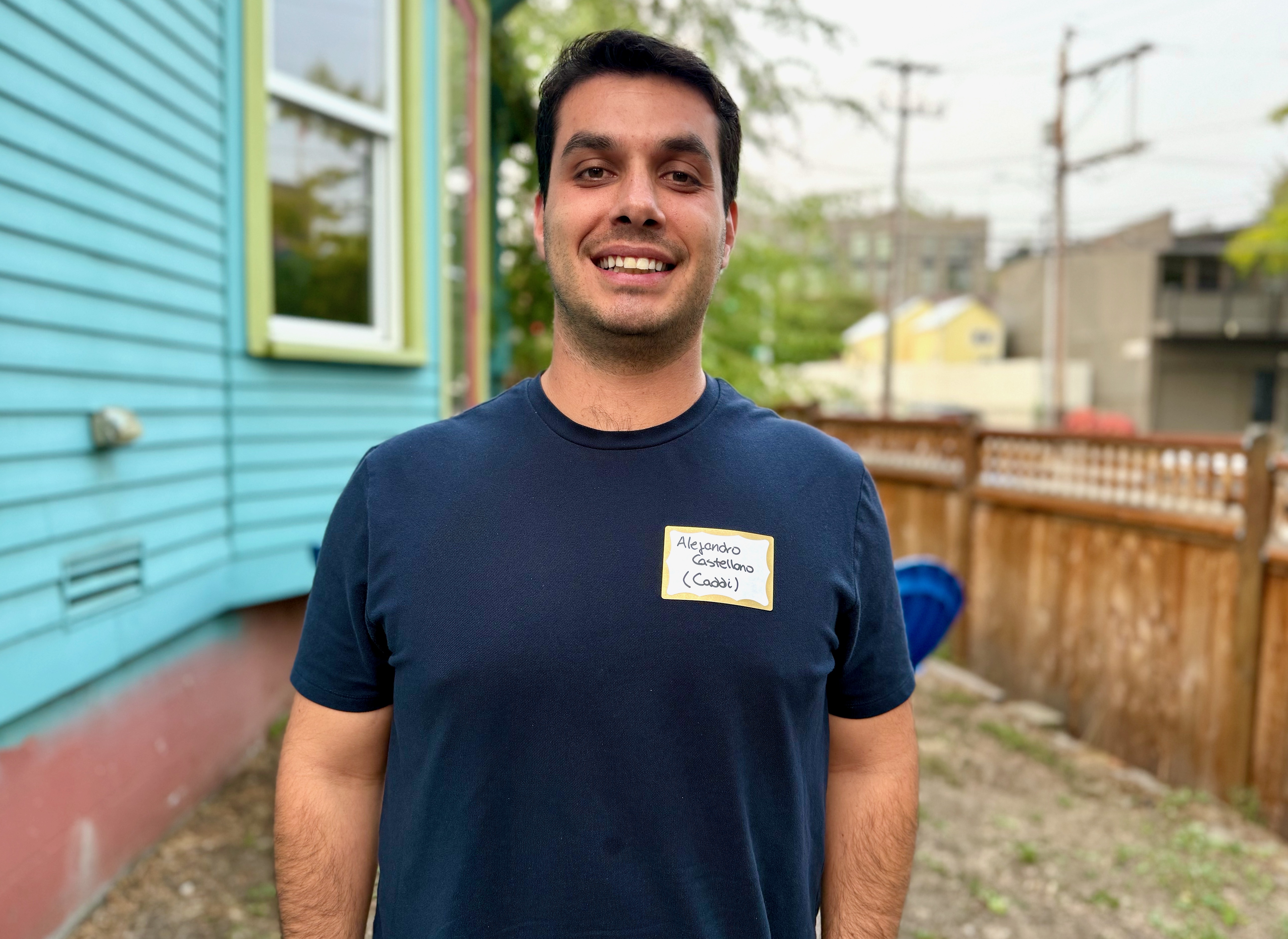
Seattle-based Caddi uses generative AI to automate basic business operations such as customer onboarding, email management, document organization, data entry and invoicing.
What’s your favorite AI use case right now?
“As a founder, you have many different hats. I’ve been using AI for coding, of course. I’ve built some automations that automatically draft follow-up emails to all the clients and all the conversations that I’ve had. I’ve used AI to prepare for meetings with customers. I have Claude and ChatGPT and all these AI tools open all the time in my phone, in my laptop. There’s a screen dedicated for them.”
Do you feel pressure from investors or customers to look more AI than you really are?
“I think a lot of companies feel that pressure. In our case, there is a component that is heavily AI and if these models didn’t exist our company couldn’t exist. The rest of the platform, all the infrastructure of how we guide the AI, how it gets built, how we validate it, how the user interacts with it — that’s not AI. And that is becoming increasingly more important than the AI component. You can have a chip for your laptop, but if you don’t have a keyboard or screen or anything, it doesn’t work.”
What’s something you as a human still provide to your company that AI doesn’t?
“Given that AI has been trained on past data, a lot of the things that AI spits out are things that somewhere in the past it made some certain sense, like the way we write emails, or maybe the way we structure an idea. But as a startup you’re effectively building something that has never existed before. So you can prompt it however you want, but it won’t give you the answers that you need. It will just support you to make decisions faster or type things faster. But that pattern recognition in your conversations with users, in how your users are struggling with something or learning something or getting excited about something — that is something that I don’t see AI being able to replicate.”
Read the full article here



